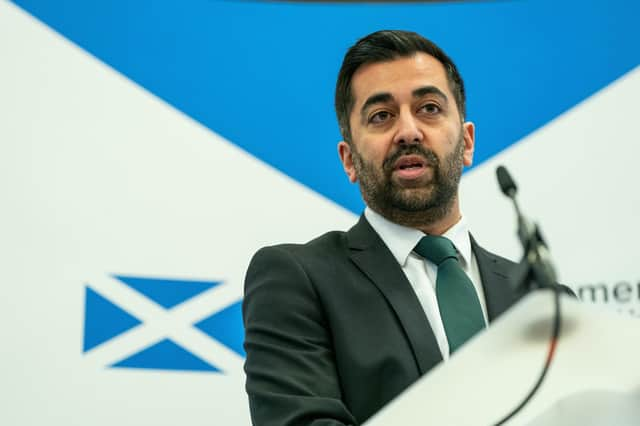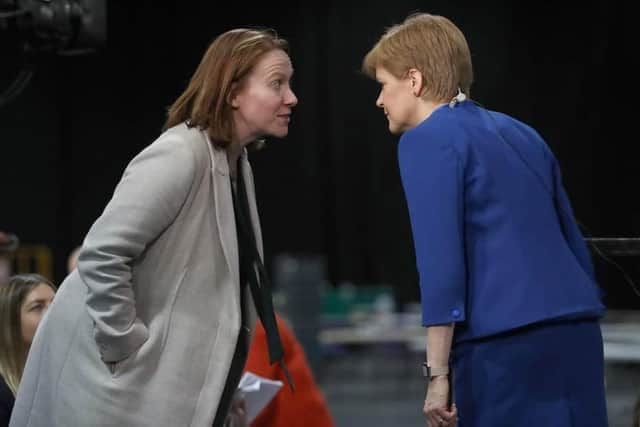Covid Inquiry: Nicola Sturgeon calls Boris Johnson a 'f**cking clown' on WhatsApp as Humza Yousaf set to appear


Recap what happened at the UK Covid-19 Inquiry today with The Scotsman's politics team.
Key Events
Welcome to The Scotsman's Covid Inquiry live blog!
I'm Rachel Amery, The Scotsman's political correspondent, and I will be with you throughout the day to bring you all the latest from the UK Covid-19 Inquiry in Edinburgh.
Today we are due to hear evidence from Liz Lloyd, Nicola Sturgeon's former chief of staff, and First Minister Humza Yousaf.
We are starting today's evidence with Liz Lloyd, who was Nicola Sturgeon's chief of staff until the former first minister's resignation in March 2023.


Liz Lloyd starts off by saying she felt accountable to the public even though she wasn't officially as a special advisor.
She says it is fair to say her relationship with Nicola Sturgeon was close, and she was one of the former first minister's closest confidants.
Before we get further into the inquiry, why not take a read of the latest article we've done previewing today's hearings: https://www.scotsman.com/news/politics/uk-covid-19-inquiry-humza-yousaf-and-nicola-sturgeons-former-chief-of-staff-liz-lloyd-to-be-questioned-4491934
The inquiry is hearing that Liz Lloyd was in “almost all important meetings” where discussions were made during the pandemic.
Ms Lloyd said: “During the course of the pandemic there would be a few other people at most of the meetings, so the health secretary, the deputy first minister was present a lot, sometimes remotely because he would be working from home, Ken Thomson, the chief medical officer - there was a core group in St Andrew’s House at a lot of those meetings, and I was part of that.”
We are now examining WhatsApp messages between Liz Lloyd and Nicola Sturgeon, handed to the inquiry by Ms Lloyd.
Nicola Sturgeon tells her on the day to make a public announcement at capacity at weddings and funerals.
Ms Lloyd tells her to stick to 20 guests, despite the UK Government reducing their rules from 30 to 15.
Counsel Jamie Dawson KC questions if that means decisions were being made at the last minute during the pandemic.
Ms Lloyd says this was a decision made at cabinet level.
Liz Lloyd has denied claims the First Minister was making decisions “on the hoof” during the coronavirus pandemic.
Ms Lloyd said: “I would think that advising that shortly before the statement on restrictions was about to be made, that a decision to change without seeking scientific advice, would be on the hoof.
“But suggesting we stick, based on evidence you’ve been given, is a more coherent approach.”
Liz Lloyd denies being “the main driver” of decisions during the pandemic.
She said: “The First Minister has a strong enough mind that if she felt my advice was not the right advice, she would have said so and acted on that.
“I am advising and sought to get the correct information on a factual basis to give that advice, but the decision is very much hers [Nicola Sturgeon].”
Apologies - I have said previously in this blog the counsel questioning is Jamie Dawson KC.
It is not - it is Junior Counsel Usman Tariq. Apologies about that!
Liz Lloyd said part of her job was to make sure the scientific advice could actually be followed in practice.
She said: “I looked at the advice that was given and thought through what it means for people living their lives in practice and how might people want to function.
“I agree it is not hugely scientific, but one of the things you have to do is think when you have a set of regulations, it was proposed in the abstract without considering the way people function in real life.”
She added: “I don’t want to suggest those giving the advice were abstract and devoid of understanding, but it was their job to give the appropriate regulation on a strict basis.
“It was not their job to think about what that means for people’s mental health or family relations, they were about keeping the R number low.
“We were thinking if you give a slight tweak, does that make it better for society and does that have serious consequences, do we have space to make that?”
Comments
Want to join the conversation? Please or to comment on this article.